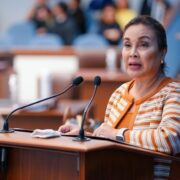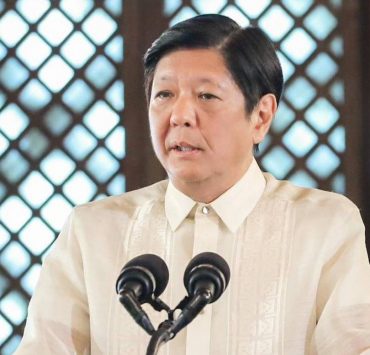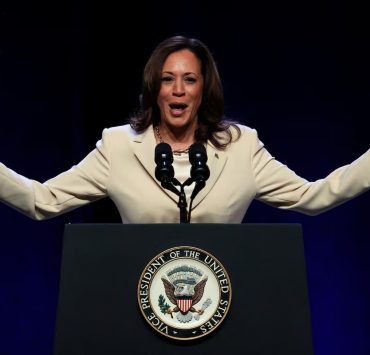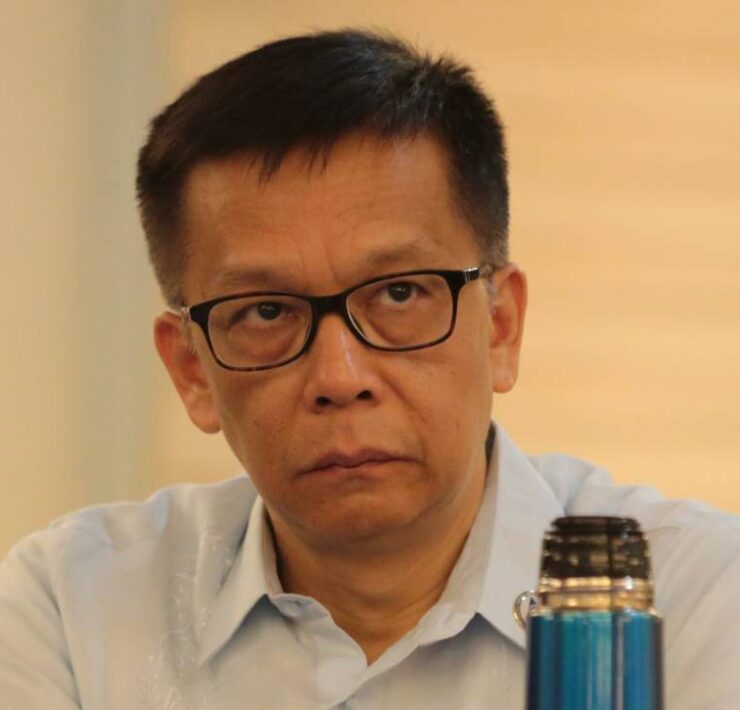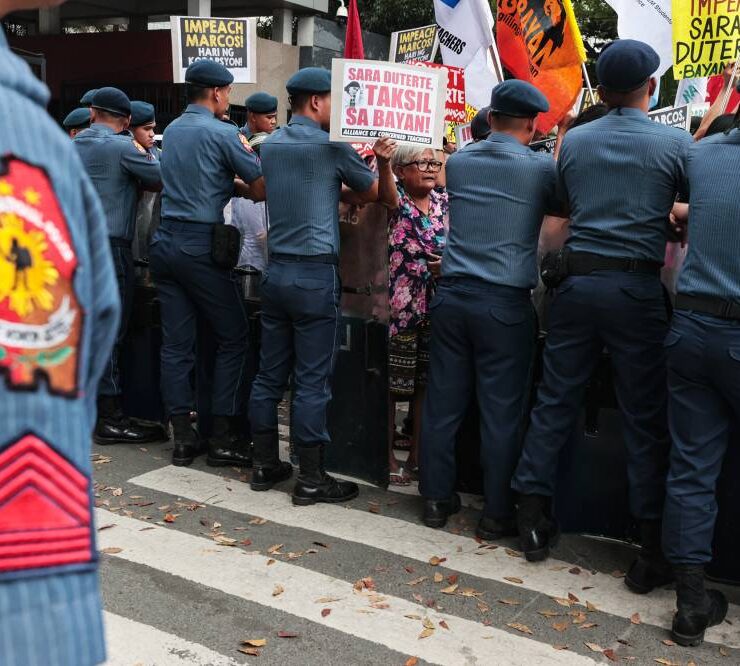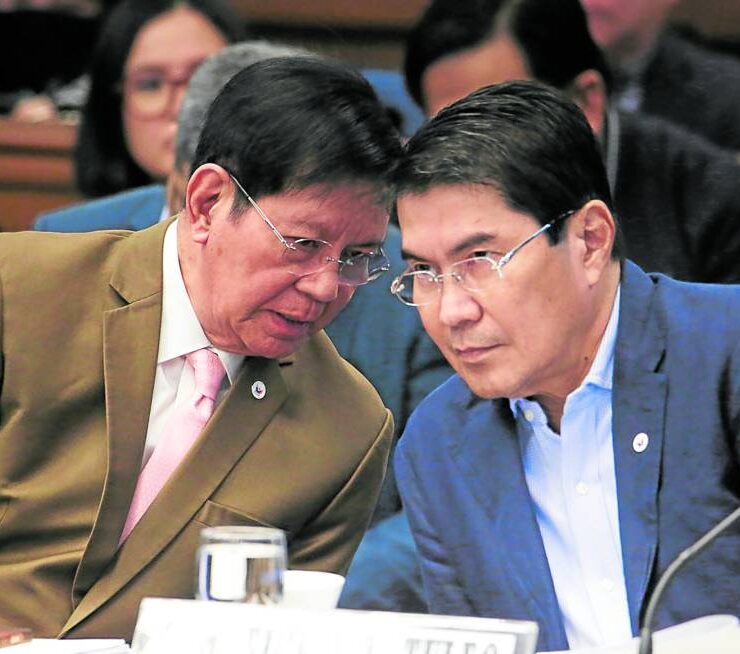Protests accompany Sona amid heavy rains
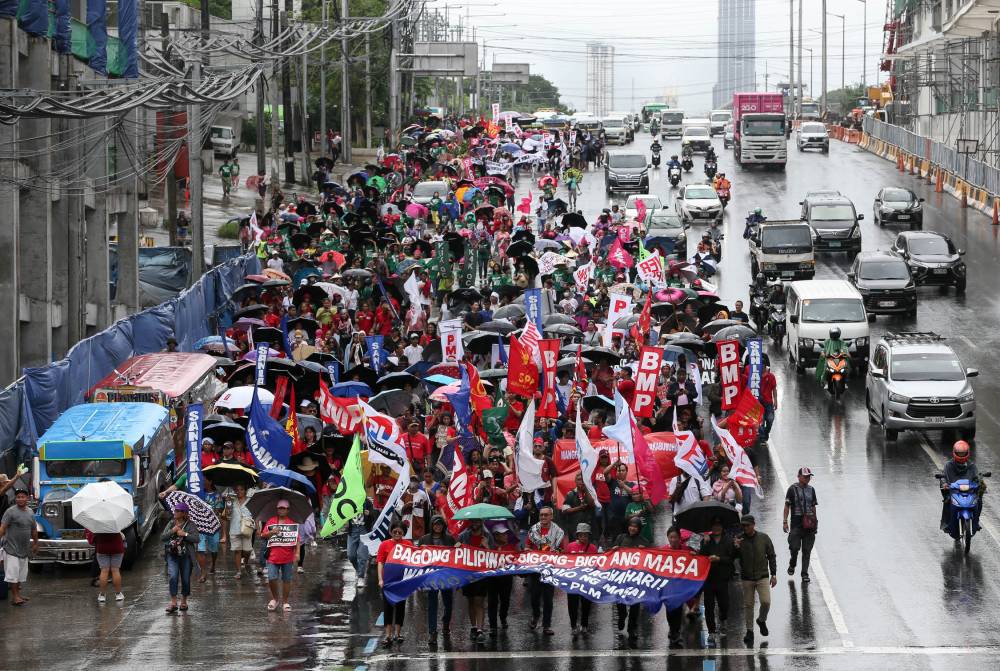
Protesters on Monday afternoon staged what they called the “People’s Sona,” timed with President Marcos’ third State of the Nation Address (Sona), while his supporters also held a rally amid heavy rains dumped by Typhoon “Carina” (international name: Gaemi).
Outside the Commission on Human Rights office in Quezon City, the House Makabayan bloc of party list Representatives France Castro (ACT Teachers), Raoul Manuel (Kabataan) and Arlene Brosas (Gabriela) as well as other protest leaders took their turns on a makeshift stage, criticizing the Marcos administration’s performance two years into his term.
“While [Marcos] paints a rosy picture of the Philippines with his ‘Bagong Pilipinas’ (New Philippines) rebranding, the reality is that women are suffering even more from worsening poverty, hunger and violence,” said Gabriela secretary general Clarice Palce.
The protesters began their march around 3 p.m. but were stopped by police outside Diliman Doctors Hospital on Commonwealth Avenue.
Being lawmakers, the Makabayan bloc members were allowed in the halls of the Batasang Pambansa complex, even as they were dressed in their protest attire.
Manuel’s barong design depicts a future as envisioned by the Filipino youth. “This symbolizes the hope of the new generation to graduate from the social ills dragging the country to further crisis and even outright war,” said a statement by Kabataan.

Brosas wore a gown designed and donated by Francis Yu which bore an artwork by artist-activist Michael Joselo Villanueva calling for the demilitarization of the West Philippine Sea.
“It’s not a fashion statement but a clear message on the real status of our nation, and what we should do about it,” she said.
Castro’s “terno” (also designed by Yu), featured an artwork by a private school art teacher depicting “our countrymen’s wish for the increase of wages so that Filipino families are able to put food on their tables.”
Marcos supporters
Meanwhile, supporters of the President gathered outside the Commission on Audit’s main office along Commonwealth, one of the routes leading to Congress.
Wearing red and white shirts bearing Mr. Marcos’ image, they played loud music and sang pop songs while rice porridge was served and a vehicle marked “Barangay Batasan Hills” handed out “siopao” and bottled water.
“It’s better to help the President become effective instead of this constant criticism. Let’s move forward rather than always looking back,” Wenby Marasigan, 43, a supporter from San Jose del Monte in Bulacan, told the Inquirer.
Marasigan and her friends Jocelyn Taday, 39, and Jackie Halasa, 37, said they came as a group organized by the city government of San Jose del Monte.
Kenneth Gaceja, a 24-year-old medical student from Quezon City, who was chanced upon by the Inquirer on the streets, said: “I expect the President to address the current problem in the West Philippine Sea and stand firm on our rights.”
He also said he hoped the President would resolve “the ongoing issue with Pogos (Philippine offshore gaming operators)” as well as tackle the problems in the education system.
‘Peaceful’ Sona
On a day like this, otherwise traditionally accompanied by protests, Philippine National Police spokesperson Col. Jean Fajardo said the Sona was “generally peaceful,” owing to their thorough security preparations.
“We also have to commend the cooperation of other agencies because it was not the PNP’s job alone,” she told reporters.
An estimated 7,500 joined the rallies—some 3,000 of them anti-Marcos protesters while an estimated 4,500 were there to show support.
The protesters were drenched by heavy rains and this could be why they pulled out while the President was delivering his speech, Fajardo said.
But they managed to burn effigies before the afternoon rains. The National Capital Region Police Office, Fajardo said, is preparing to file charges for their violation of environmental laws.
In Davao City, groups led by the Bagong Alyansang Makabayan (Bayan) trooped to the Freedom Park at 1:30 p.m. to also hold a People’s Sona, as they criticized the modernization program for public utility vehicles, the rising prices of basic goods and the failure of regional wage boards to raise minimum wages, among other issues.
Protest actions were also held in Baguio, Cebu, Roxas City, Kalibo and other areas around the country. —WITH REPORTS FROM FRANCES MANGOSING, NASTASHA VERAYO-DE VILLA AND GERMELINA LACORTE













